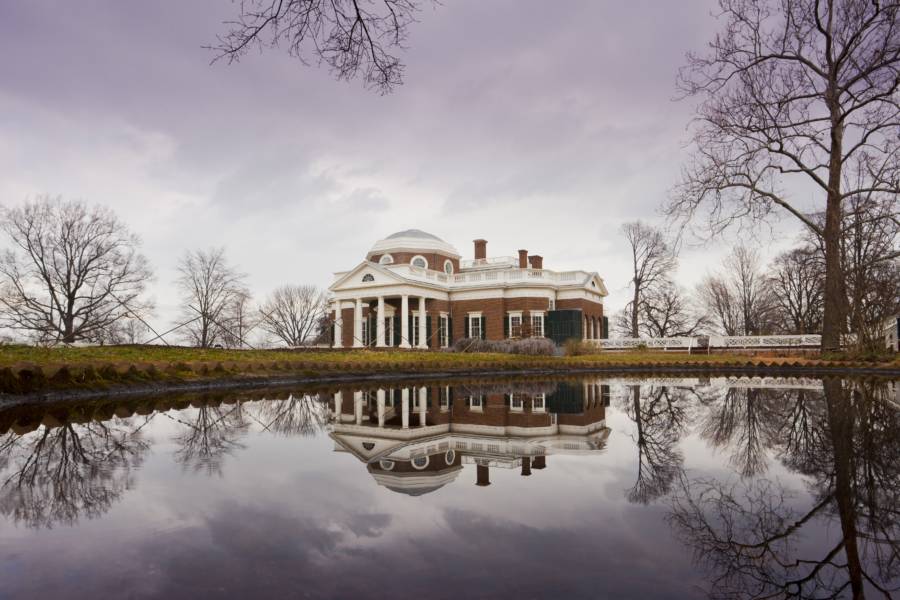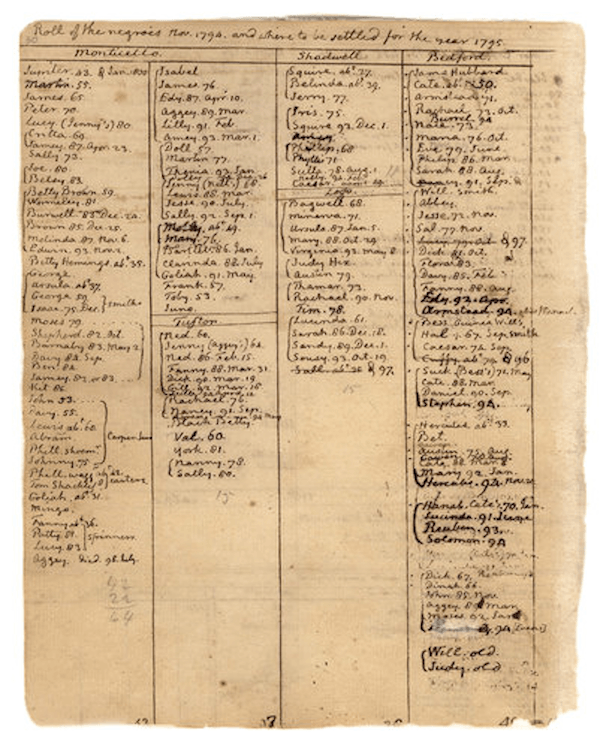Jefferson Opposed Abolition And Was Deeply Racist

Jose-Fuste RAGA/Gamma-Rapho via Getty ImagesJefferson’s Monticello estate was more of a kingdom of slavery.
For a moment on paper, Thomas Jefferson opposed slavery. During the American Revolution But as his own labor camp at Monticello grew, he came to fear abolition as a threat to his profitability.
According to John E. Ferling, professor emeritus of history at the University of West Georgia, Jefferson tried to introduce laws to the Virginia House of Burgesses in 1769 that would have banned free black people from entering or leaving the Commonwealth.
He felt that if slaves saw free black people among them then they would rebel. The law would also have banished children whose fathers were of African origin and white women who had children with black men.

Wikimedia CommonsPage 30 of Jefferson’s 1795 Farm Book lists 163 slaves at Monticello.
These laws were so extreme that even the average Southerner disagreed with them. But according to Thomas Jefferson Memorial Foundation professor Peter S. Onuf, his goal was simply to conceal his “shadow family” of children he’d had with enslaved women.
Jefferson’s 1785 book Notes on the State of Virginia made it clear how he felt about black people. He referred to them as orangutans, said that they have “a very strong and disagreeable odor,” and that they were “inferior to the white in the endowment of both body and mind.”





